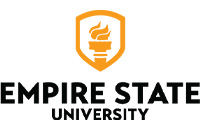decom
Get Background Information About Your Topic
Use reference sources for background reading
Reference information sources can be helpful when beginning the research process. They can give you a working knowledge of your chosen subject area. They allow you to:
- Gain a broad and general understanding of the topic.
- Learn important names, key facts, issues and debates, and answers to questions.
- Get familiar with the vocabulary related to the topic so you can effectively search the scholarly literature..
Where to find reference sources
The college library has access to hundreds of online reference sources. You can access these titles in the A-Z List of Encyclopedias and Dictionaries here.
Reference books are also available in print at libraries that have physical collections. Contact your local academic or public library to see what they have available in print (you will not normally be able to access the online collections of other academic libraries).
There are also some reference sources freely available on the Web (such as Wikipedia). Just be sure to evaluate these the way you would any other source before basing your research on them.
Types of reference sources
There are many different kinds of reference information sources, and each is useful for finding a certain type of information.
Dictionaries

- Provide word definitions and other information about words. There are many other types of dictionaries.
- A bilingual dictionary translations from one language to another.
- A thesaurus contains synonyms, and often antonyms, for words.
- An etymological dictionary contains historical word origins.
- A subject dictionary is a good source for longer and more in-depth definitions using the vocabulary of a particular area of study.
Encyclopedias

- Provide brief articles explaining a topic. There are general encyclopedias like Encyclopedia Britannica and Wikipedia. There are also subject-specific encyclopedias that provide detailed, advanced and technical content in a particular area of study.
Atlases

- Contain maps that associate different types of data (e.g., populations, politics, etc.) with geography. There are different types of maps available.
- Political maps show countries, states or provinces, counties, cities, towns, and villages.
- Road maps show streets, roads, and highways.
- Topographical maps show the lay of the land.
- Demographic maps show population statistics.
- Historical maps compare geographical and political information across eras.
Gazetteers

- Contain geographical information (often using latitude and longitude coordinates) that is cross-referenced with demographic, political, historical, and other kinds of information. Gazetteers may be included in atlases but there are also standalone gazetteers that do not contain maps.
Almanacs

- Annual publications that contain time sensitive information about geography and politics, economic data, astronomical data, world records, tides, weather, statistics, etc.
Directories

- Contain contact information for persons, organizations or companies. They may also contain descriptions of those entities.
- Some kinds of directories contain "how to locate" information for data or documents.
Biographical Resources
 Contain information about the lives and accomplishments of notable people in various fields of achievement or areas of study.
Contain information about the lives and accomplishments of notable people in various fields of achievement or areas of study.
Manuals

- Contain technical how-to information on everything from operating a device to performing a sophisticated task, such as repairing a car.
Handbooks and Guides

- Contain detailed, advanced information about a particular subject area. This can include facts about a subject or instructions for operating a device or completing a procedure.
Guides to the Literature and Annotated Bibliographies

- List and describe information sources (e.g., books, articles, etc.) in a particular subject area.
- They may be exhaustive (include everything) or selective.
- Bibliographies of web resources are sometimes called Internet bibliographies or pathfinders.
Do not cite reference information sources
You do not normally cite reference materials, such as dictionaries or encyclopedias, or textbooks, because they do not contain original research. They are what are called tertiary sources (more on that later), which means they are typically a condensed version of multiple secondary sources, usually aimed at non-scholarly audiences.
Accessibility Note
Please note: If you need to request accommodations with content linked to on this guide, on the basis of a disability, please contact Accessibility Resources and Services by emailing them. Requests for accommodations should be submitted as early as possible to allow for sufficient planning. If you have questions, please visit the Accessibility Resources and Services website.

